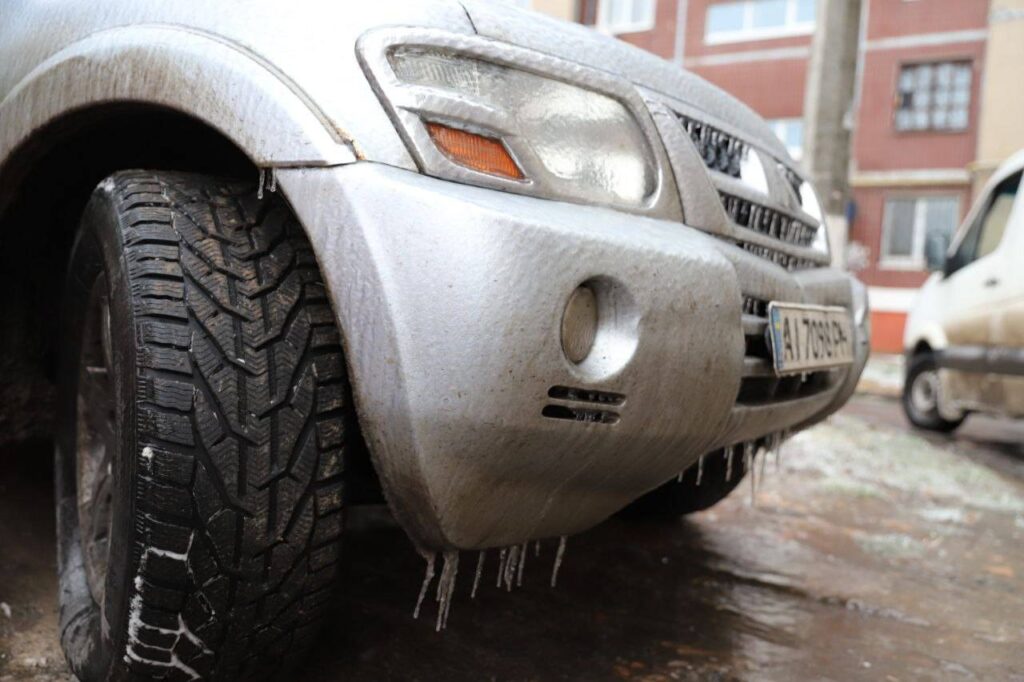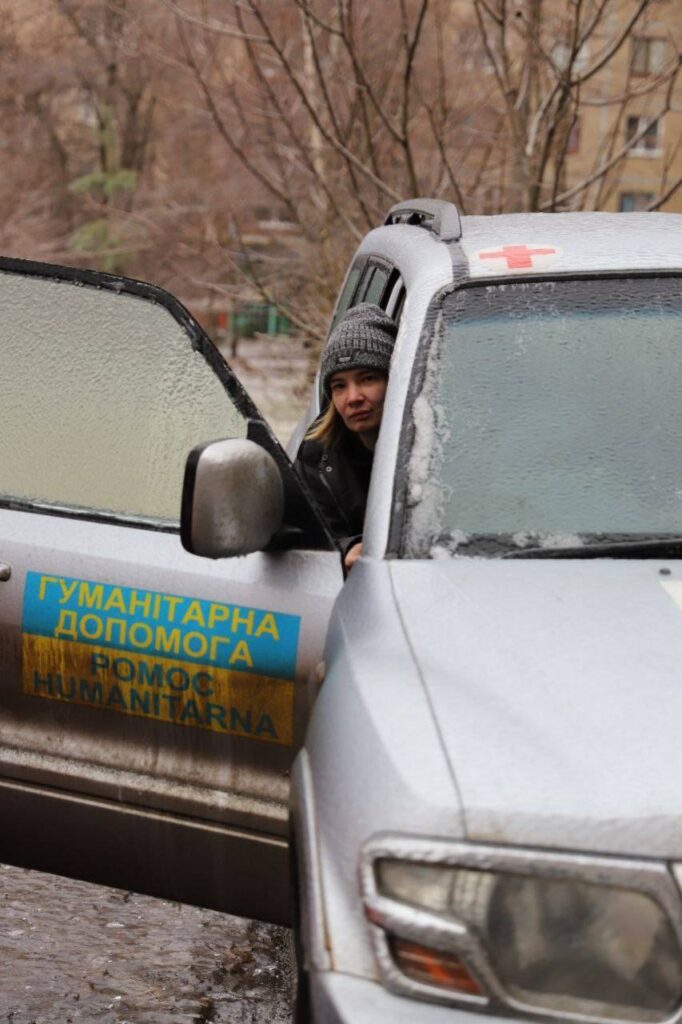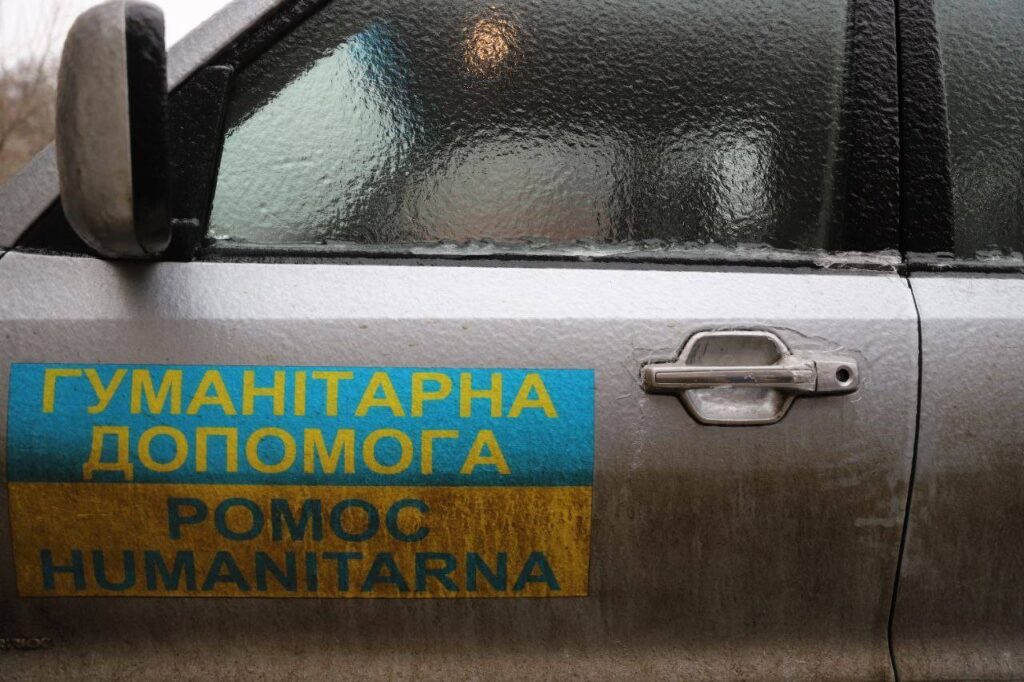
Base UA’s work is a daily challenge even without special circumstances.
With a small team of permanent volunteers and very few employees, we try our best every day to help the people in the Donetsk region during the ongoing russian aggression. We are winterizing damaged houses, working with children and young people in cultural and educational activities, providing basic medical care, evacuating people from frontline towns and delivering humanitarian aid.
But when winter comes, it makes all our efforts even more challenging.

It is December 16 in Kramatorsk and the thermometer reads -6 degrees. It had snowed a few days ago, then it got a little warmer for a short time and the snow melted a little. But it immediately became freezing cold again, which means that the entire region is practically a single sheet of ice.
Not only do we often look like clumsy penguins when we walk, but the ice can be a serious danger on the roads. Even for good winter tires, these conditions are a big problem. We’ve already had to abandon some missions in the past few days, and others we didn’t even start. For example, when we wanted to drive to the village of Tetyanivka, which lies in a valley behind a high hill. The road downhill is so steep that we couldn’t always take the risk – and had to turn around.
But it’s not even just the roads that are making our work difficult at the moment. Power cuts have become the norm these days. Not because of Russian shelling, which fortunately is very rare in Kramatorsk and the surrounding area at the moment. The ice is the problem. Centimeter-thick layers of ice are covering the power cables in the towns and villages in the area. This often means that the electricity cannot flow.
Moreover, branches and twigs are so badly iced over that some trees can no longer bear the weight, break off and take power cables with them into the abyss.
Water and power problems
And then there are also problems with the water: the pumps of the infrastructure providers in the area were not exempt from the power cuts. As a result, there there is often no running water in our village near Kramatorsk.
Over the past few weeks, the entire Base UA team has therefore often been forced to work from our base, repeatedly turning on the power generator, washing dirty dishes with water from canisters and only using the toilet in really urgent emergencies.
However, we don’t let this get us down and carry on working. We are used to bad conditions and with a little humor we can get through even the darkest days. The humanitarian work continues!



